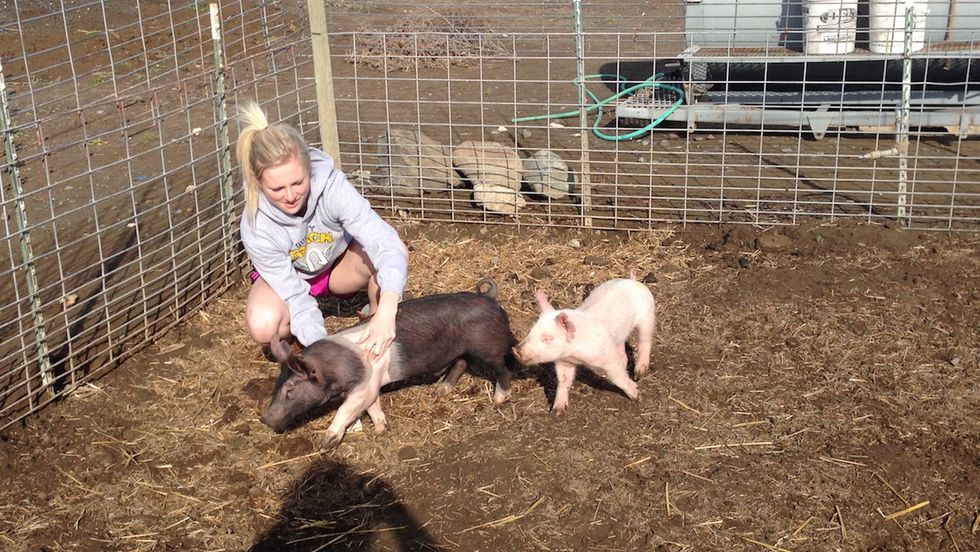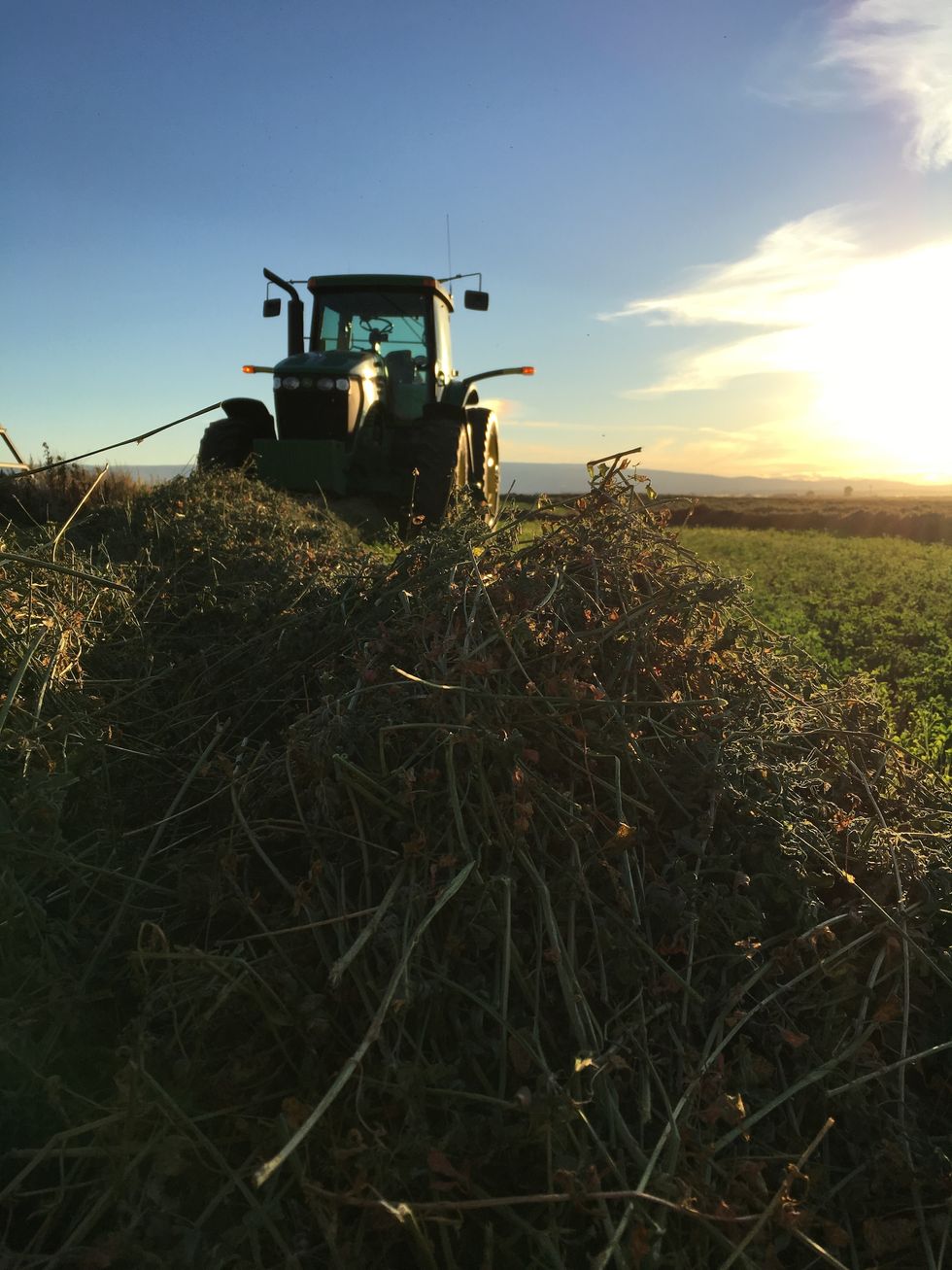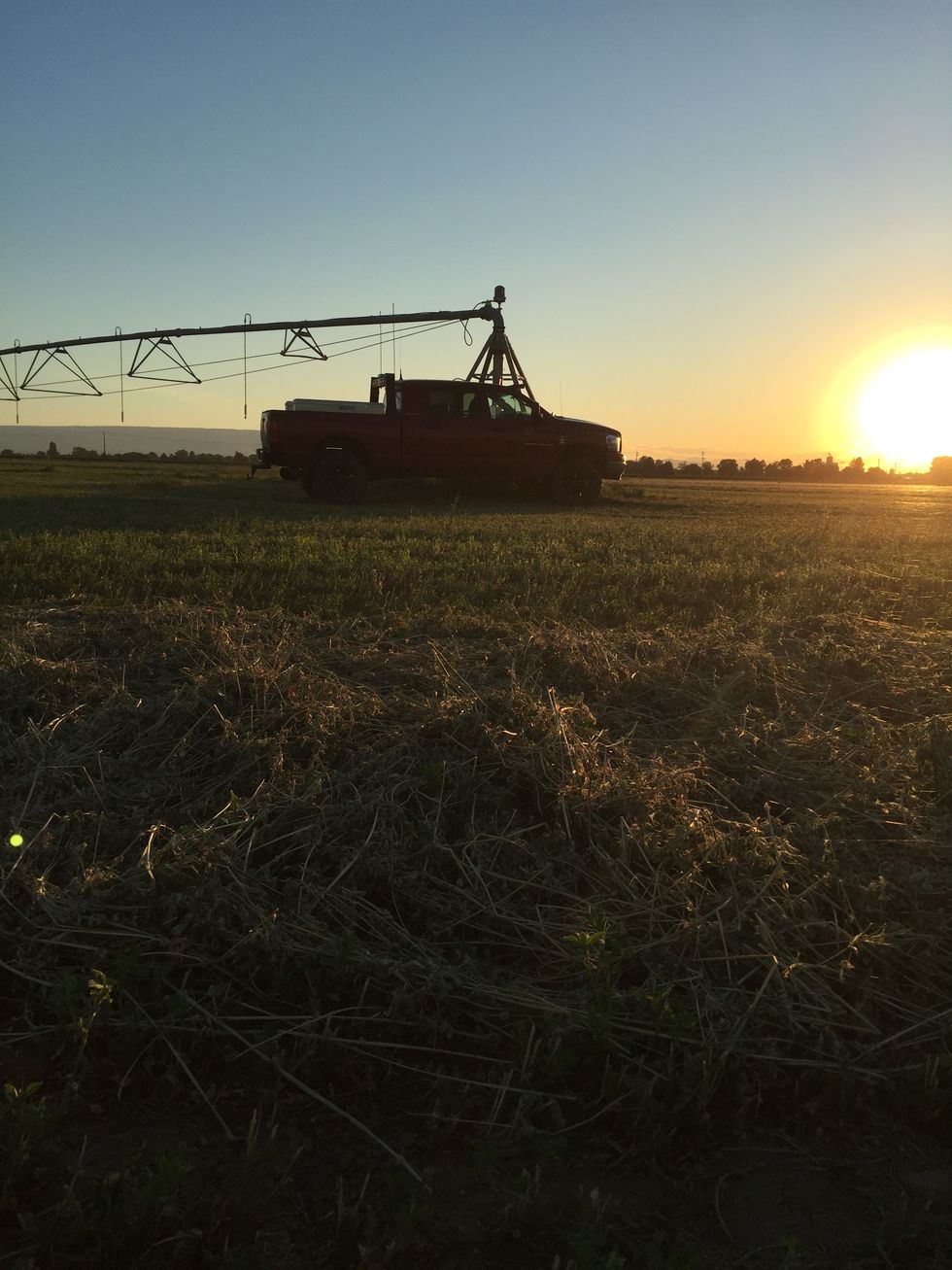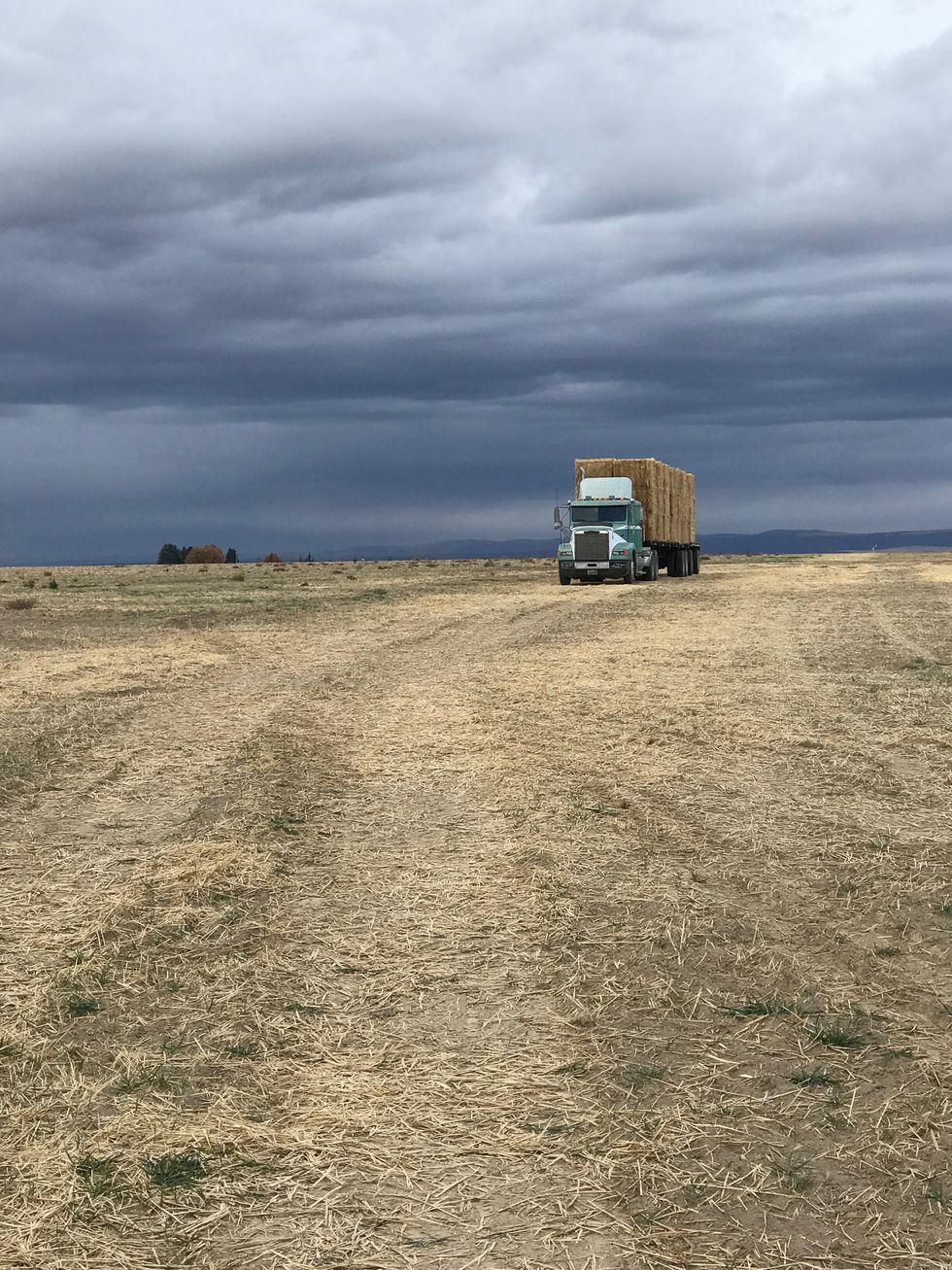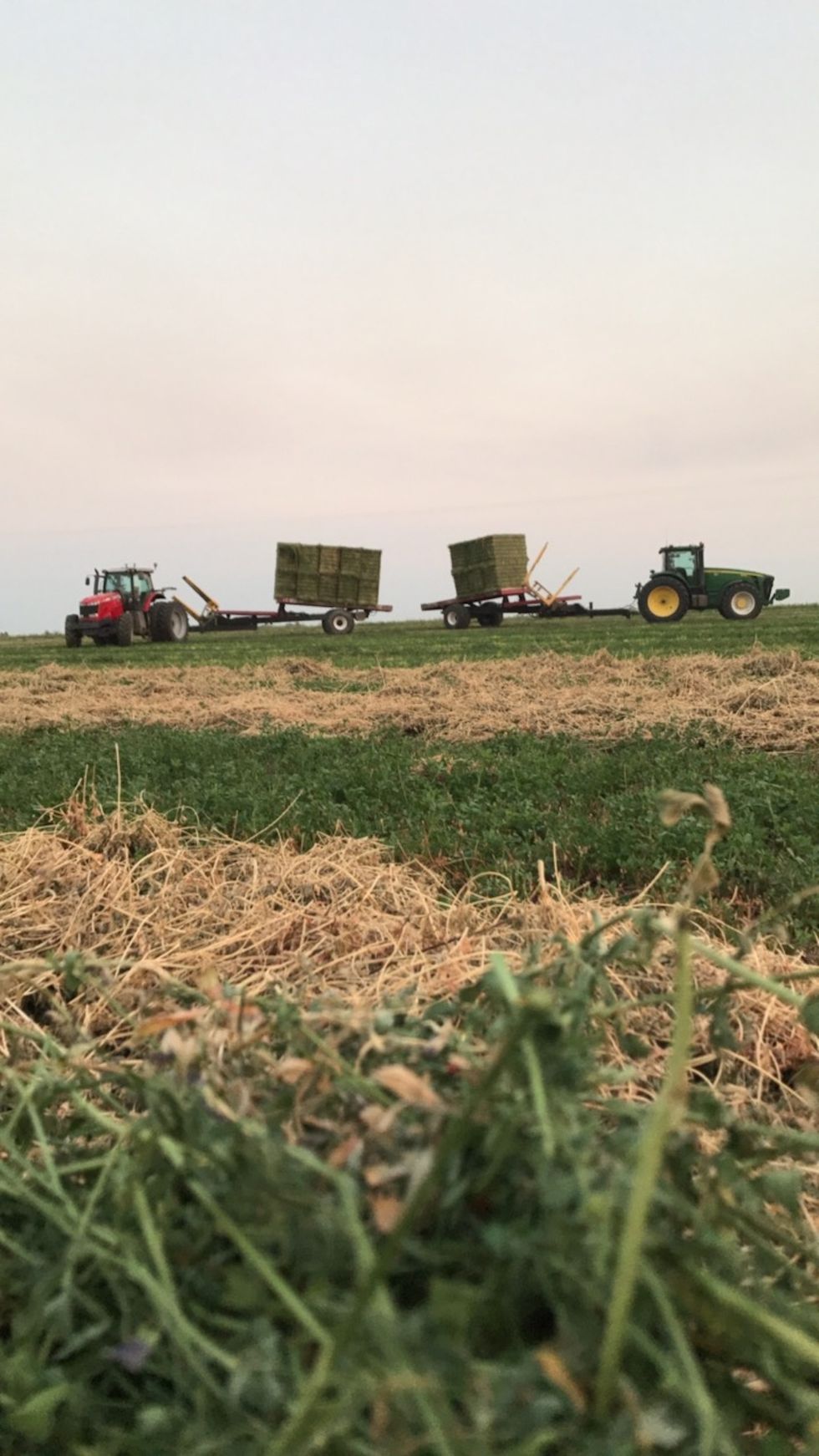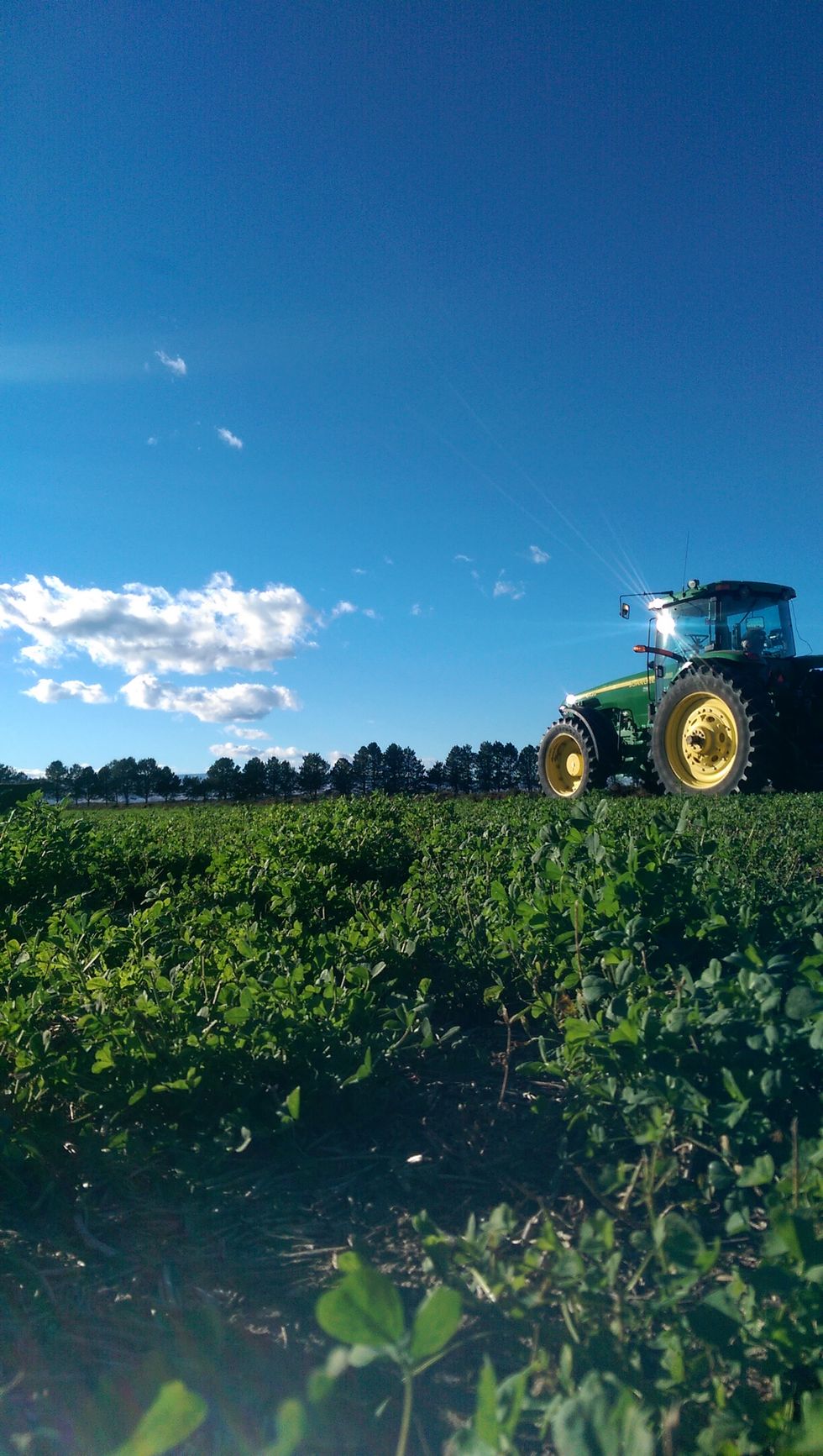Research shows that children forget memories before the age of seven, and that's probably true. I can only remember vague happenings as a young child, but I do remember lessons that were learned from growing up on a farm. I'm not saying that a city has no lessons to be learned, but I am saying they are different.
If you asked me where I wanted to live as a 10-year-old, I would have told you New York City. If you asked me where I want to live now, it still would not be Quincy, WA, but I believe I learned the most important lessons here.
1. The work you put in is the work you get out
Looking out over my porch, I watch crops grow for months. The crops didn't just start growing, though. Hours upon hours of work are put in. This article explains it well and in the simplest of terms.
The crops growing were a daily representation that the amount of work you put into something is what you can expect to get out of it. For example, if a farmer decides to grow mango trees in Washington, they are probably doomed from the beginning. Mango trees require a long time to be able to grow, and they need frost-free, dry winters. If you've ever been to Washington, this is not the case.
I was never good in art class. I watched as classmates drew intricate profiles of people. Me — I drew stick people and wondered why I couldn't draw. Well, Rebecca, you never put the time in to learn how to draw, therefore stick people was the result of the time you put in.
2. Waking up early is only ever a good thing
I am just learning and putting this one to use. As a kid, waking up at the last possible moment was the norm, and I'm sure this isn't unique to just my childhood. Even starting college, I was still sleeping in until 8:45 when my class was at 9.
A couple of weeks ago, I said enough. The alarm goes off at 5:30, and my feet hit the ground. I make my breakfast, hit the gym, shower, do my devotions, and get caught up on schoolwork all before lights come on in my neighbor's apartment.
3. You learn where your food comes from
This one is important to me. I wish more people were aware of where their food comes from. It's not just a potato that Walmart grew in the stock room. It took a farmer's knowledge and every-day willpower to cultivate and nurture. It's not just an ear of corn. It takes months for corn to grow, and the weather is the key player in determining a good crop, as it is for every single thing that grows from the ground.
4. You learn to take risks
My dad explained to me how risky farming really is. He is so knowledgeable and enthusiastic about farming, and I love listening and learning about it. To put it simply, a farmer takes a loan from the bank, risking not being able to get it back.
This was huge going into college for me. I didn't exactly know what I wanted to do. I never wanted money to be my motivation. I wanted to help people, whatever I did. My options went from public relations to political science to fashion merchandising to exercise science. I went with public relations, knowing I'll be able to use that knowledge wherever I go, but I still always felt like I was taking a risk.
5. You eventually appreciate where you come from
I always wanted to live in a city. Who knows, I still could, but now I could not imagine a life without growing up on our farm. I appreciate the people, their willingness and work ethic. Now, I crave home, the open space, the fresh air. I am so thankful for where I come from.

